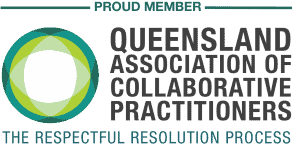Getting a child returned from overseas
If you wish to have your child returned from overseas, you are in good stead if the country they have gone to is a party to the Hague Convention. If you wish to prevent a child from going overseas, you should place them on the airport watchlist.
What is a Hague Convention case?
The Hague Convention on the Civil Aspects of International Child Abduction is an international treaty under which arrangements are made for the return of children who have been wrongfully removed from or retained outside their country of residence.

The convention sets up a central authority in each signature country to deal with applications for the return of children taken to or from each country. The Australian Government Attorney-General’s Department is the central authority for Australia.
Guiding principles and objectives
The Hague Convention operates on the guiding principles that:
- the child’s welfare is best protected by a rapid response to a parent having removed a child from their country of habitual residence, and
- child abduction, in general, must be prevented.
The Convention aims to:
- Secure the prompt return of a child wrongfully removed to or retained in a country which is a party to the Convention (‘contracting state’) to the government (‘state’) of habitual residence;
- Ensure that rights of custody or access of the state of origin are respected, with judgement on the custody to be rendered in that country, on the assumption that the court in the land of habitual residence is best able to make decisions for the child, and
- Ensure the relevant court in the country of habitual residence can make decisions for the children.
The Convention operates under the following specific conditions:
- It applies only between contracting states, and so only has force where both countries are signatories to the Convention;
- It applies only to matters where the subject child is under the age of 16. Proceedings under the Convention cease on the day a child turns 16; and
- The child must have habitually resided in a contracting state directly before the other party breached access. custody rights
A judicial officer hearing a Hague matter may indicate early in the process that dispute resolution may be of assistance to parties, not just about the importance of return but about parenting matters generally. The judicial officer would encourage the parties to agree on a dispute resolution process. Due to any Hague intervention’s timeliness, there are occasions where it is more suitable for a family consultant (who has undertaken specific training in dispute resolution) located within Child Dispute Services to undertake the work. Other services in the community are well placed to provide such services. Still, they may not be well established to provide the service in a timeframe that aligns with judicial timeframes and expectations.
If the matter is suitable for Child Dispute Services referral, a notation is made in the Orders that the parties agree to the process.






